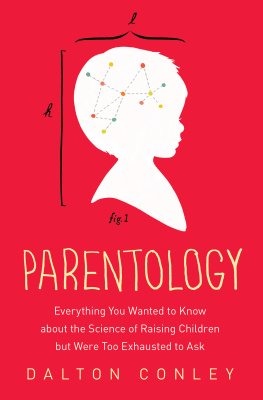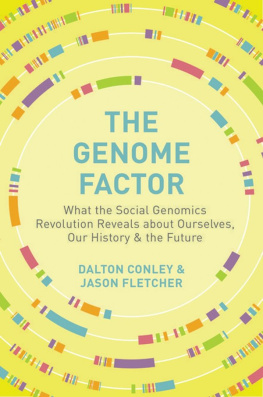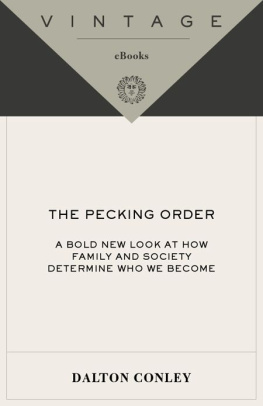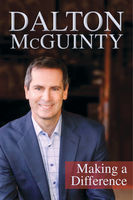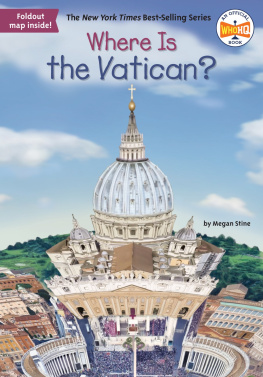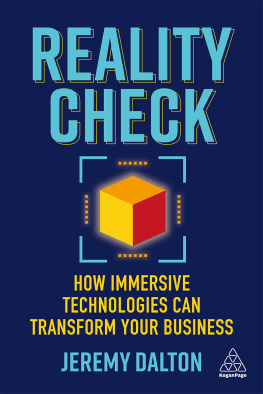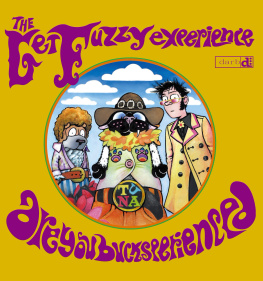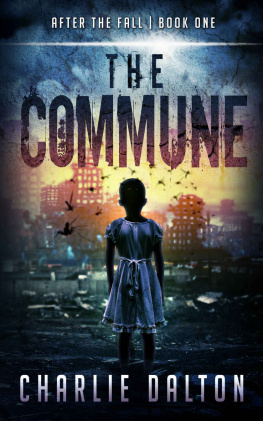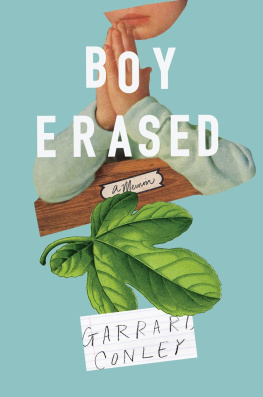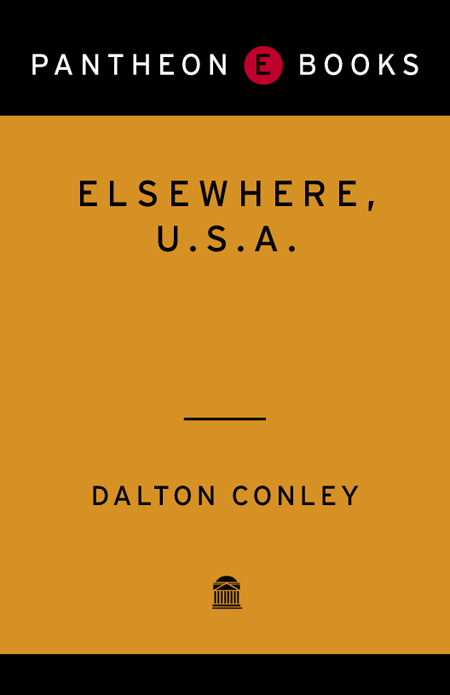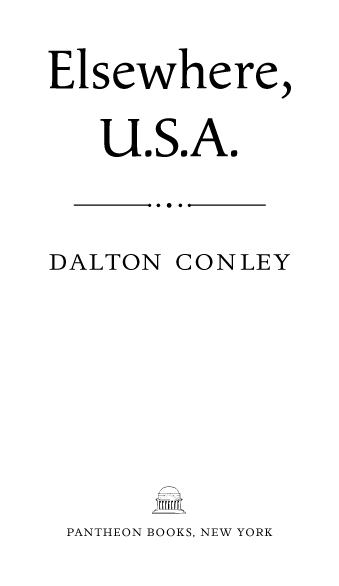Preface
A TALE OF THREE GENERATIONS
My maternal grandparents were married for more than fifty years. He was the town dentist of Carbondale, Pennsylvania, and she was his homemaker partner. As a professional couple in a mostly'working-class, coal-mining community, they enjoyed a rich social life. They played bridge on the weekends, going so far as to compete in the statewide circuit of tournaments. They also played golf a couple times a weeksharing a drink with their professional friends afterward as they swapped jokes about Jesus and Moses playing the water hole. With some occasional substitutions, they always seemed to tee up with the same couples: another dentist and his wife, a doctor and his wife, and the owner of the local Ford dealership and his wife. None of these college-educated-women worked, though many of them appeared (to me at least) to be a notch or two brighter than their husbands.
As my grandmother put it: Grandpa is in charge of the outside, and I am in charge of the inside. She meant that he took care of mowing the lawn and weeding their vegetable garden, while she was responsible for keeping house and entertaining. But I never thought such an arrangement was quite fair, since I saw the inside to be the 1,200-square-foot house and the outside to stretch to the ends of the known universe. But the system seemedfrom outward appearancesto work. Roles and authority were never questioned. And no one ever raised a voice in their home; in fact, still today, if I need to conjure up a calming, peaceful image, I think of sitting in a rocking chair on their porch, talking about my summer plans.
Of course, I remember their lives through the idealized glasses of a child. But there are some basic facts that cannot be disputed. For example, though my grandfather enjoyed his work, he saved and invested his money as best he could so that he could retire early. And retire early he didby his mid-fifties the only teeth he pulled were those of my sister and me when we went for our annual checkup in his Depression-era basement chair. Work was simply something you did and hopefully enjoyed, but it was something you strove to leave behind as soon as you were financially able to lead the good life. For them, the good life entailed paid off mortgages, kids through college, and a condo in Florida where they could spend the winter months and play golf more than twice a week. Perhaps, then, it is fitting (or even ironic) that my grandfather, who lived to a ripe age of eighty-one, died thanks to his favorite leisure activity. While playing golf in Florida in 1989, his friend lost control of the motorized golf cart and ran him over. A few days later, he died of heart failure.
Perhaps the absurdity of the accident sparked my grandmothers irrepressible humor. But for the fifteen years afterward that she lived on, she would remark that perhaps it was best that he died the way he did. He always said he wanted to die on a golf course after hitting a hole in one, she would say, perhaps unaware of the renowned scene from the film Caddyshack, which depicted just that. Hell have to settle for par. The real reason it was all for the best, shed add in a more serious tone, was that his health was beginning to fail him anywayand its better, shed argue, to go quickly than to wither away.
My own parents marriage represented quite a different arrangement to that of my mothers folks. My father did the cooking. Both pursued careers that were ends in and of themselves. Earning money was secondary in the 1960s and 70s. He, an artist, has painted acrylics on canvas long before and long after his day job ended. He soldiers on, forsaking the New York art world, to which he had moved from Connecticut via Wisconsin. Today, he paints daily in a large garage-based studio in rural Pennsylvania, not far from where my mother was raised. She, meanwhile, continues to write books long after her flash of success in the early 1980s has been forgotten and publishers have moved on to the latest hot, young author.
They never learned to play golf or bridge. For them, leisure meant throwing or attending a dinner party with their group of bohemian friends. Or perhaps going to an art opening. Or maybe, if my mother could convince my father, going to a literary reading. But as they got older, mostly their free time meant watching television or reading, for my mother, and exercising or watching sports, for my father. They, of course, dont have as much free time as my grandparents since they still work at their chosen vocation every day.
As children both my parents were given bikes and free-range of the small towns in which they lived, whereas my sister and I had to learn to navigate the dangerous world of New York City in the 1970s. That meant a lot shorter radius of freedom. It also meant learning the bus, and later, the subway system. And it meant that socializing for us had to be prearranged, often involving sleepovers. In fact, the first time my sister was allowed to go outside and roam the city without an adult was January 22, 1984. She was eleven. This date was forever etched into our consciousness since it was preserved for posterity by the New York Times, in a story the paper ran on the revitalization of lower Broadway. At first my mother thought it must have been a pervert who was bothering her daughter and her friends when Alexandra recounted the story. But the next day, the proof was there in black and white: Down the block at Tower Records, the midday rush was reaching a crescendo, wrote John Duka in the Metro Section.
Lower Broadway is New Wave, said Alexandra Conley, 11 years old, as she and a group of her friends who live in the neighborhood headed for the back of the store.
Its in, piped Johanna Jackson, 11.
Whats really good about this neighborhood, said Jessica Nudel, 11, as she cleared her throat to silence the shuffling of a group of boys who joined them, whats really good, is that it used to be all burned out, you know, but now you can be a kid and walk anywhere without being afraid.
Gosh, is she smart, said a boy in a blue parka. At that, Jessica, Johanna and Alexandra all rolled their eyes, jumped up and down like hot popcorn and fell upon the nearest stack of 45s.
Today, though New York City is way safer than it was in 1984, I could not imagine letting my ten-year-old daughter walk the four blocks to school by herself, let alone hang out in Tower Records (now defunct, the building snapped up by my employer, New York Universitybut thats a different, if related story about the transformation of the urban economy). She would hardly have time, anyway. As I write this, she is busy with ice-skating lessons. Yesterday was piano, and the day before was French. This is all piled on top of homework, online math tutorials, and other after-school activities. Not to mention being dragged along to academic lectures, on business trips, and to playdates where the parents want to get to know one another, so they thrust unfamiliar kids (roughly the same age) into a room together as the grown-ups sip coffee. And besides, my childrens own friends are much more in flux. Whereas Alexandra is


